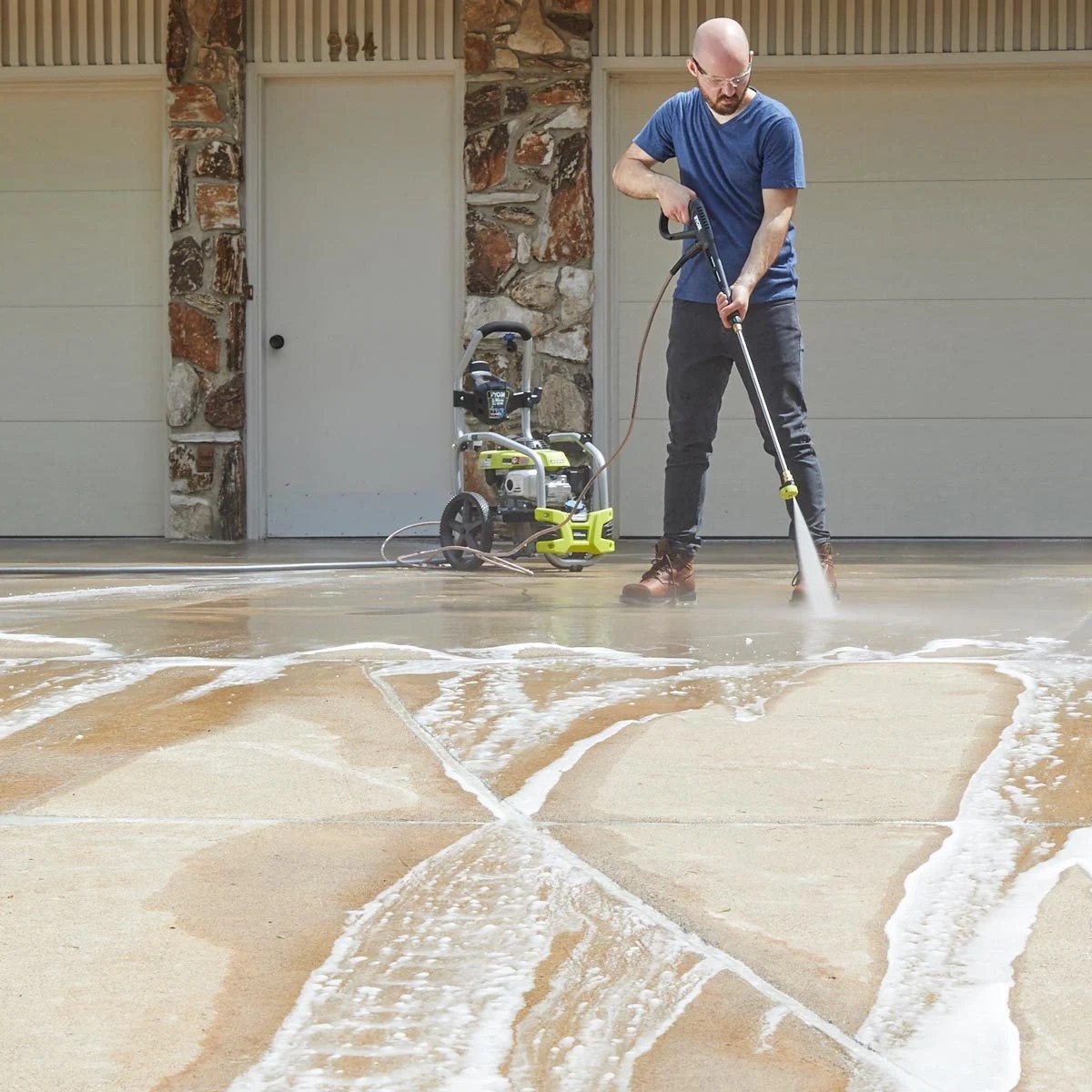

Articles
What Psi Pressure Washer To Clean Concrete?
Modified: January 7, 2024
Discover the ideal psi pressure washer for effectively cleaning concrete surfaces in this informative article. Find expert advice and recommendations on pressure washers for concrete cleaning.
(Many of the links in this article redirect to a specific reviewed product. Your purchase of these products through affiliate links helps to generate commission for Storables.com, at no extra cost. Learn more)
Introduction
Welcome to the world of pressure washing! Pressure washers have become an essential tool for homeowners and professionals alike when it comes to cleaning a variety of surfaces, including concrete. Whether you want to spruce up your driveway, patio, or even the exterior of your home, a pressure washer can help you achieve remarkable results in a fraction of the time and effort compared to traditional cleaning methods.
So, you’ve decided to invest in a pressure washer to tackle your concrete cleaning projects, but you might be wondering, “What PSI pressure washer do I need to clean concrete?”
In this article, we will delve into the different factors you should consider when choosing the right PSI (pounds per square inch) for cleaning concrete, as well as provide recommendations for cleaning various concrete surfaces. Additionally, we will share some important precautions and safety measures to ensure a successful and safe pressure washing experience.
Before we dive into the specifics, it’s important to understand why pressure washing is crucial for cleaning concrete.
Concrete surfaces, such as driveways, sidewalks, and patios, are exposed to a range of elements including dirt, grime, oil stains, moss, and mildew. Over time, these contaminants can accumulate and make your concrete surfaces appear dull, slippery, and unattractive. Not only does this detract from the overall aesthetics of your property, but it can also pose safety hazards, especially when wet surfaces become slippery.
Pressure washing utilizes a high-pressure stream of water to blast away stubborn dirt, stains, and grime. The force generated by the pressure washer effectively lifts and removes these residues from the surface, restoring the original look of your concrete. Not only does pressure washing save you time and physical effort, but it also provides a deep and thorough clean, enhancing the durability and longevity of your concrete surfaces.
Now that we understand why pressure washing is important for cleaning concrete, let’s explore the key factors to consider when choosing the appropriate PSI for your pressure washer.
Key Takeaways:
- Choose the right PSI for your pressure washer based on factors like surface type, stain severity, and your comfort level. Start with a lower PSI and gradually increase to prevent damage.
- Prioritize safety when pressure washing concrete by wearing protective gear, testing on a small area, maintaining a safe distance, and using proper technique and detergents.
Why Pressure Washing is Important for Cleaning Concrete
Concrete surfaces are highly durable and commonly found in driveways, sidewalks, patios, and other outdoor areas. However, due to their porous nature, they are prone to collecting dirt, grime, oil stains, and even biological growth such as algae and mildew. Over time, these contaminants can not only diminish the appearance of your concrete surfaces but also compromise their integrity and safety.
Here are some of the key reasons why pressure washing is crucial for cleaning concrete:
- Restores the appearance: Pressure washing effectively removes deep-seated dirt, discoloration, stains, and other blemishes from your concrete surfaces. This can instantly revive the look of your driveway, patio, or walkway, making it appear cleaner and more inviting.
- Prevents slippery surfaces: Moss, algae, and mildew can grow on concrete surfaces, especially in shaded areas or where water tends to accumulate. These biological growths can create a slippery surface when wet, posing a safety hazard. Pressure washing helps to eliminate these growths, reducing the risk of slips and falls.
- Improves curb appeal: A well-maintained exterior enhances the overall curb appeal of your property. By pressure washing your concrete surfaces, you can remove unsightly stains and grime, making your property more visually appealing and potentially increasing its value.
- Extends the lifespan: Regular pressure washing not only cleans the surface but also removes contaminants that can gradually erode the concrete. By eliminating debris and preventing the buildup of damaging substances, you can help extend the lifespan of your concrete surfaces.
- Promotes a healthier environment: Mold, mildew, and algae not only affect the appearance of your concrete but can also contribute to poor air quality. Pressure washing effectively removes these allergens, creating a healthier environment for you and your family.
While pressure washing offers numerous benefits for cleaning concrete, it is essential to choose the right PSI to ensure effective cleaning without causing damage. In the next section, we will explore the factors you need to consider when selecting the appropriate PSI for your pressure washer.
Factors to Consider When Choosing Pressure Washer PSI for Cleaning Concrete
Choosing the right PSI (pounds per square inch) for your pressure washer is crucial when it comes to effectively and safely cleaning your concrete surfaces. PSI refers to the amount of pressure the washer can generate, and selecting the appropriate PSI will depend on several factors:
- Type of concrete surface: Different concrete surfaces require different levels of pressure. For example, a driveway typically requires a higher PSI due to the heavy traffic and higher likelihood of deep-seated stains. On the other hand, a patio or walkway may require a lower PSI as they generally face less wear and tear.
- Type and severity of stains: Consider the type and severity of the stains you are dealing with. Oil stains, for instance, may require higher pressure to effectively lift and remove. Mildew or moss, on the other hand, can usually be successfully removed with lower pressure.
- Power of the pressure washer: The power rating of your pressure washer will determine the maximum PSI it can produce. Gas-powered washers typically offer higher PSI compared to electric ones. Ensure your pressure washer has adequate power for the desired cleaning results.
- Nozzle selection: The nozzle you use plays a significant role in controlling the pressure. Different nozzle tips provide different spray angles and pressure levels. For removing tough stains on concrete, a nozzle with a 15-degree or 25-degree spray angle is usually recommended. Avoid using a nozzle with a narrow spray angle, such as 0-degree, as it can damage the concrete surface.
- Experience and comfort level: Consider your experience and comfort level with pressure washing. If you are new to pressure washing, it is advisable to start with a lower PSI and gradually increase if necessary. This helps prevent accidental damage to the concrete due to excessive pressure.
It’s important to note that while higher PSI can provide more cleaning power, it can also increase the risk of damaging the concrete surface, especially if used improperly. It is always better to start with lower pressure and gradually work your way up while monitoring the effect on the surface.
Now that we have covered the factors to consider when choosing pressure washer PSI for cleaning concrete, let’s move on to some specific PSI recommendations for cleaning different concrete surfaces.
For cleaning concrete, a pressure washer with a PSI of at least 3000 is recommended to effectively remove dirt, grime, and stains. Higher PSI can provide better cleaning results, but be cautious of using too much pressure on delicate surfaces.
PSI Recommendations for Cleaning Different Concrete Surfaces
When it comes to cleaning different concrete surfaces, the recommended PSI will vary based on the type of surface, the severity of stains or dirt, and the power of your pressure washer. Here are some general PSI recommendations to guide you:
- Driveway: Driveways often require higher PSI due to the heavy traffic and the presence of deep-seated stains like oil or tire marks. A pressure washer with a PSI range of 2500 to 3500 is typically effective for cleaning driveways. Start with a lower PSI and gradually increase if necessary, making sure not to exceed the maximum recommended pressure for your particular driveway surface.
- Patio or Walkway: Patios and walkways usually experience less wear and tear compared to driveways. A pressure washer with a PSI range of 1500 to 2500 should suffice for most patio and walkway cleaning needs. This lower PSI range helps prevent any potential damage to the surface while effectively removing dirt, mildew, and other stains.
- Concrete Walls: Cleaning concrete walls may require higher PSI to reach taller surfaces. A pressure washer with a PSI range of 2000 to 3000 would be suitable for most concrete wall cleaning projects. Again, be mindful of the nozzle and distance from the surface to prevent any accidental damage.
- Stairs or Steps: Stairs or steps often have smaller surface areas and may require lower PSI to clean effectively. A pressure washer with a PSI range of 1000 to 1500 can usually do the job. Take care to aim the pressure washer nozzle at a downward angle to prevent water from flowing uphill and potentially damaging the surface.
- Garden Paths: Garden paths are typically less prone to deep stains or heavy grime buildup. A pressure washer with a PSI range of 1000 to 1500 is usually sufficient for cleaning garden paths, ensuring the removal of dirt and other debris without causing any damage.
Remember, these are general PSI recommendations, and it’s essential to assess the specific condition of your concrete surface and adjust accordingly. Always start with a lower PSI and gradually increase if necessary while monitoring the effect on the surface. Additionally, follow the manufacturer’s recommendations and guidelines for your specific pressure washer model.
Now that you have an idea of the recommended PSI for different concrete surfaces, it’s important to take certain precautions and safety measures when pressure washing concrete. We’ll cover those in the next section.
Precautions and Safety Measures for Pressure Washing Concrete
While pressure washing is an effective method for cleaning concrete, it’s important to prioritize safety to ensure a successful and accident-free experience. Here are some crucial precautions and safety measures to keep in mind when pressure washing concrete:
- Wear protective gear: Always wear appropriate personal protective equipment (PPE) while pressure washing. This includes safety goggles or glasses to protect your eyes from debris and water, gloves to protect your hands, and sturdy footwear with non-slip soles to prevent slips and falls.
- Read the user manual: Familiarize yourself with the user manual of your pressure washer. Understand its features, recommended operating procedures, and safety guidelines. Different models may have specific instructions or precautions that you should be aware of.
- Be mindful of surroundings: Before starting, ensure the area is clear of people, pets, and valuable objects. Pressure washers can be powerful, and the water stream can cause injury or damage if not directed properly. Also, be cautious of nearby electrical outlets or equipment to avoid the risk of electric shock.
- Test on a small area: Before pressure washing the entire surface, test on a small, inconspicuous area to assess the impact on the concrete. This allows you to determine the appropriate pressure and nozzle distance without risking accidental damage to the entire surface.
- Maintain a safe distance: Maintain a safe distance between the pressure washer nozzle and the concrete surface. For most concrete cleaning, a distance of about 12 to 18 inches is recommended. Starting too close to the surface or using excessive pressure can erode or damage the concrete.
- Use proper technique: Hold the pressure washer nozzle at a slight angle, aiming downwards towards the concrete. This helps prevent water from getting trapped and potentially causing damage. Move the nozzle in a steady and controlled motion, overlapping the cleaned areas to ensure consistent results.
- Use appropriate detergents: Depending on the type and severity of stains, you may need to use detergents specifically designed for pressure washing concrete. Follow the manufacturer’s instructions for mixing and applying the detergent, and ensure proper rinsing to avoid any residue.
- Protect nearby plants and delicate surfaces: Cover any plants or delicate surfaces near the area you are pressure washing to prevent damage from the water stream or cleaning detergents. Use plastic or tarpaulins to create a protective barrier.
- Maintain proper posture: Ensure good posture while operating the pressure washer to avoid strain or fatigue. Use both hands to control the equipment and maintain a stable position to minimize the risk of accidents.
By following these precautions and safety measures, you can ensure a safe pressure washing experience while effectively cleaning your concrete surfaces. Remember, if you’re unsure about any aspect of pressure washing or if the cleaning task appears challenging, it’s best to consult a professional to avoid potential damage or injury.
Now that we have covered the precautions and safety measures, let’s summarize the key points discussed in this article.
Conclusion
Pressure washing is a powerful and efficient method for cleaning concrete surfaces such as driveways, patios, sidewalks, and more. By utilizing the right PSI and following the proper techniques, you can achieve remarkable results and restore the appearance of your concrete, enhancing its durability and safety.
When selecting the appropriate PSI for your pressure washer, consider factors such as the type of concrete surface, severity of stains, power of the pressure washer, and your own comfort level. Starting with a lower PSI and gradually increasing if necessary can help prevent accidental damage and ensure effective cleaning.
Remember to prioritize safety by wearing protective gear, reading the user manual of your pressure washer, and being mindful of your surroundings. Test on a small area before cleaning the entire surface and maintain a safe distance while pressure washing. Proper technique, use of appropriate detergents, and protection of nearby plants and delicate surfaces are also essential.
By following these precautions and safety measures, you can enjoy the benefits of pressure washing while minimizing the risks. Regular pressure washing not only improves the aesthetics of your concrete but also extends its lifespan and provides a healthier environment.
Now armed with knowledge about the recommended PSI for different concrete surfaces and important safety precautions, you can confidently tackle your cleaning projects. Remember, if you have any doubts or face particularly stubborn stains, it’s always wise to consult a professional for assistance.
Get ready to transform your concrete surfaces with the power of pressure washing and enjoy the satisfaction of a clean and revitalized exterior space.
Frequently Asked Questions about What Psi Pressure Washer To Clean Concrete?
Was this page helpful?
At Storables.com, we guarantee accurate and reliable information. Our content, validated by Expert Board Contributors, is crafted following stringent Editorial Policies. We're committed to providing you with well-researched, expert-backed insights for all your informational needs.
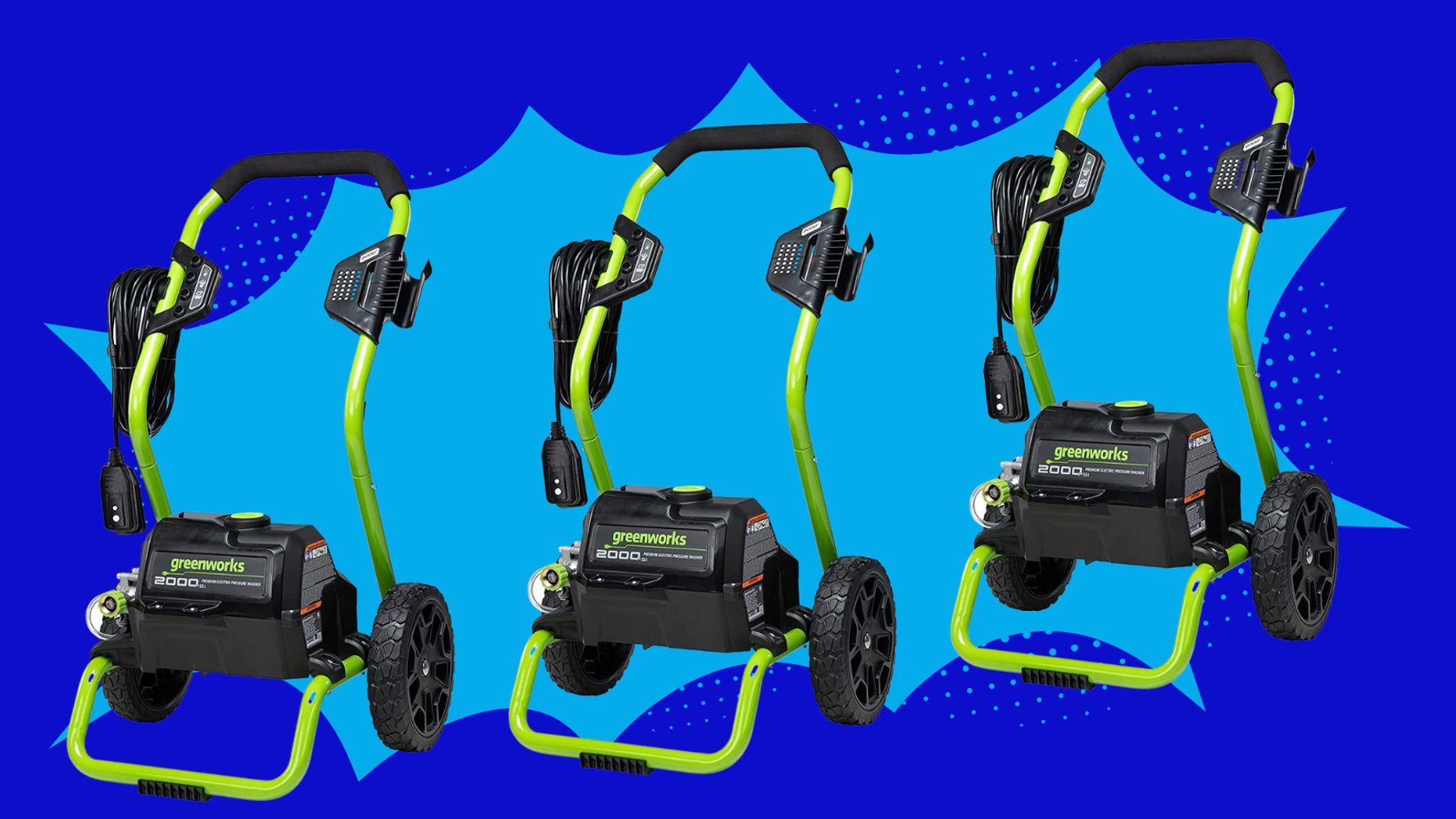
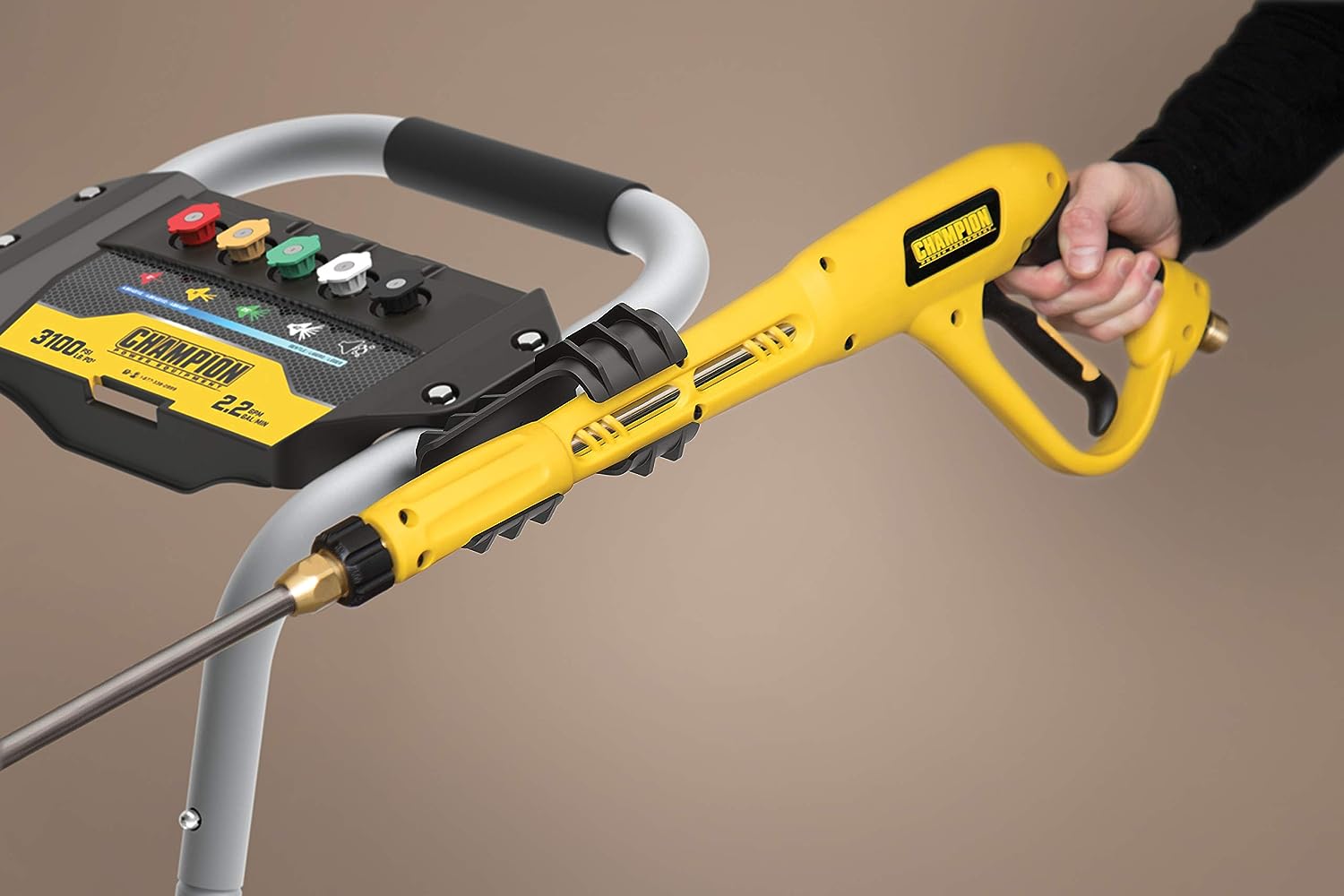
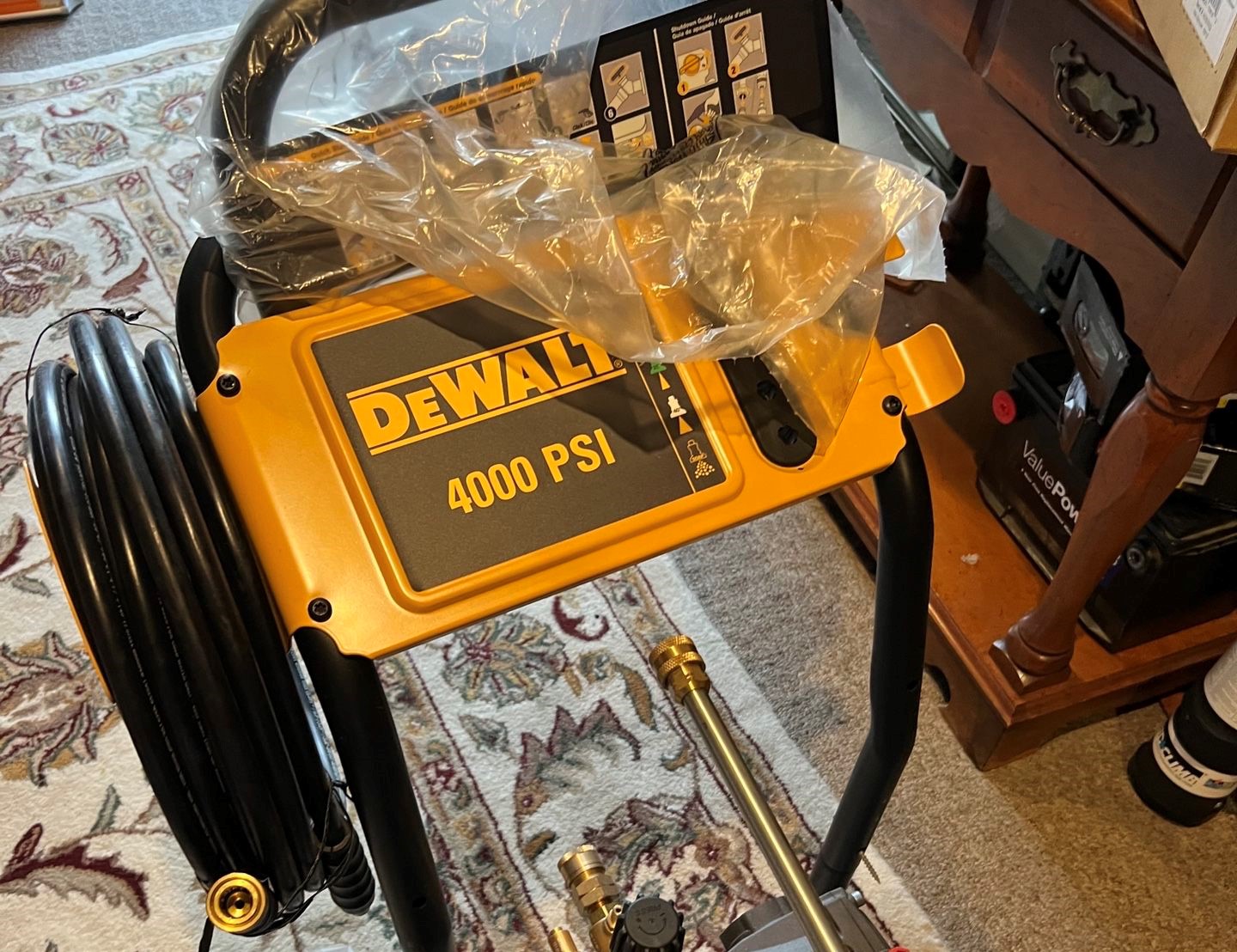
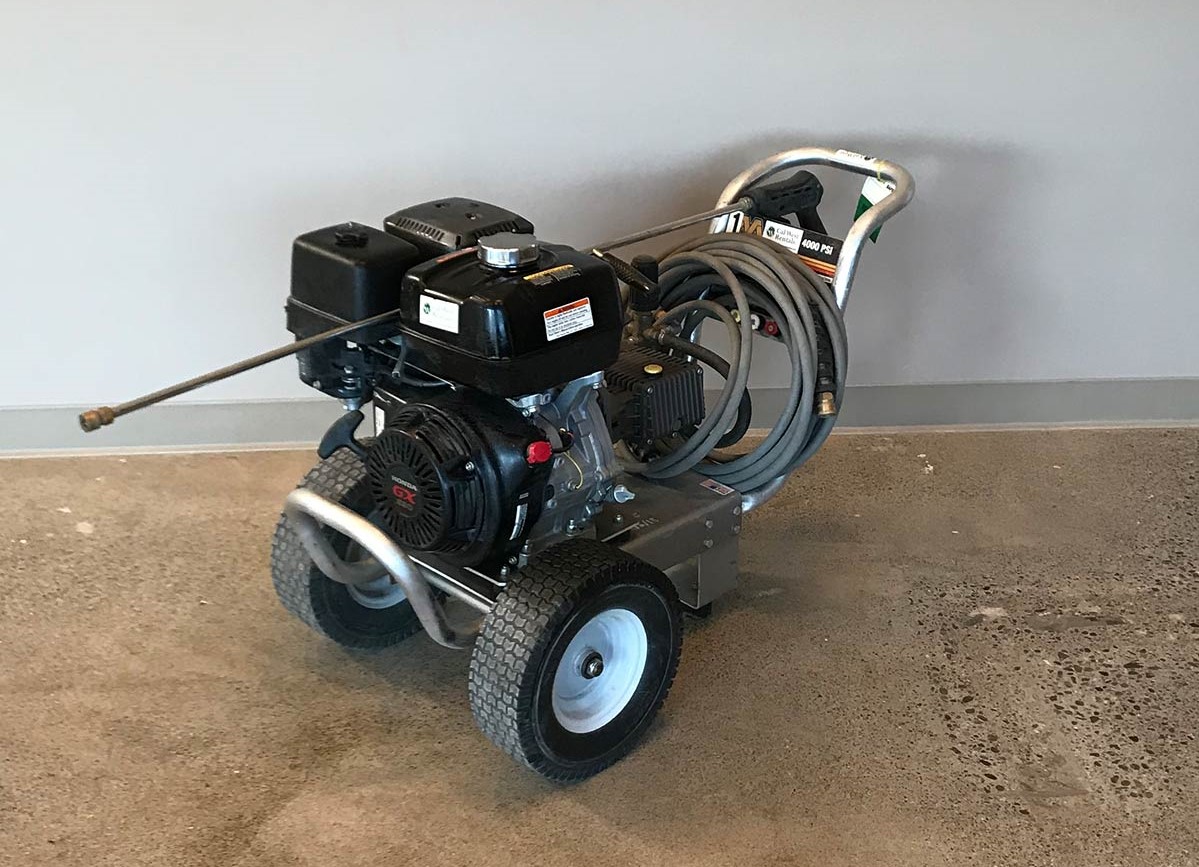
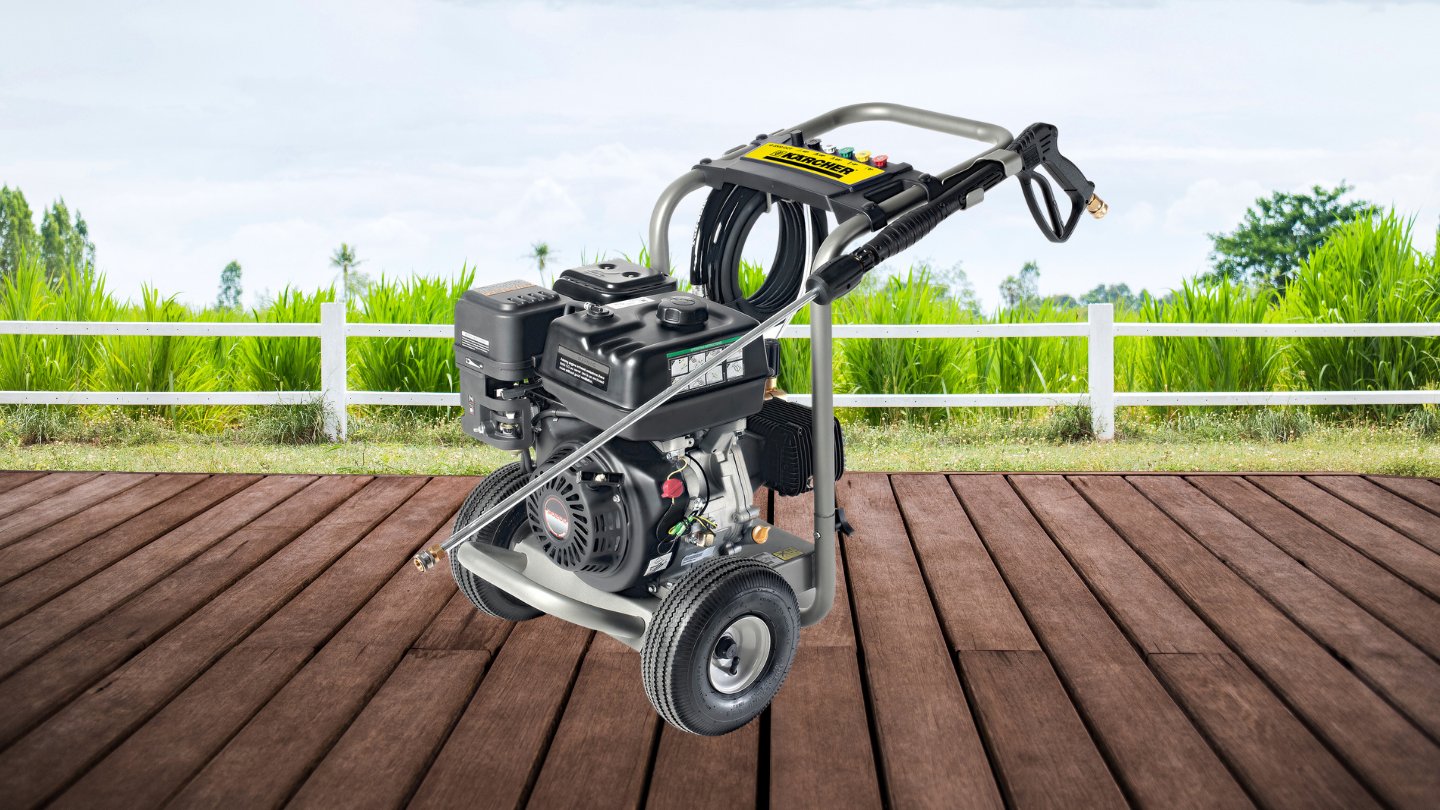
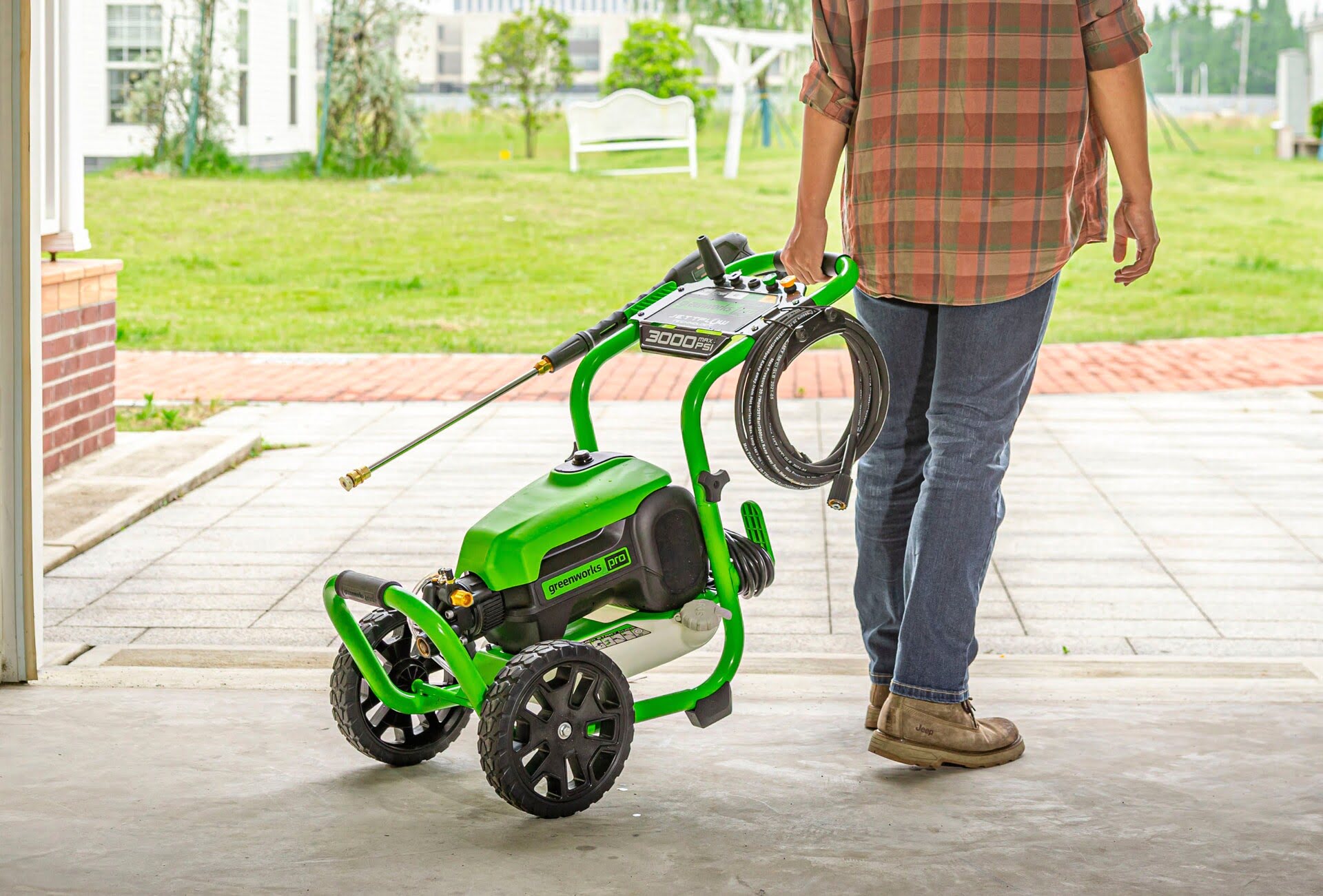
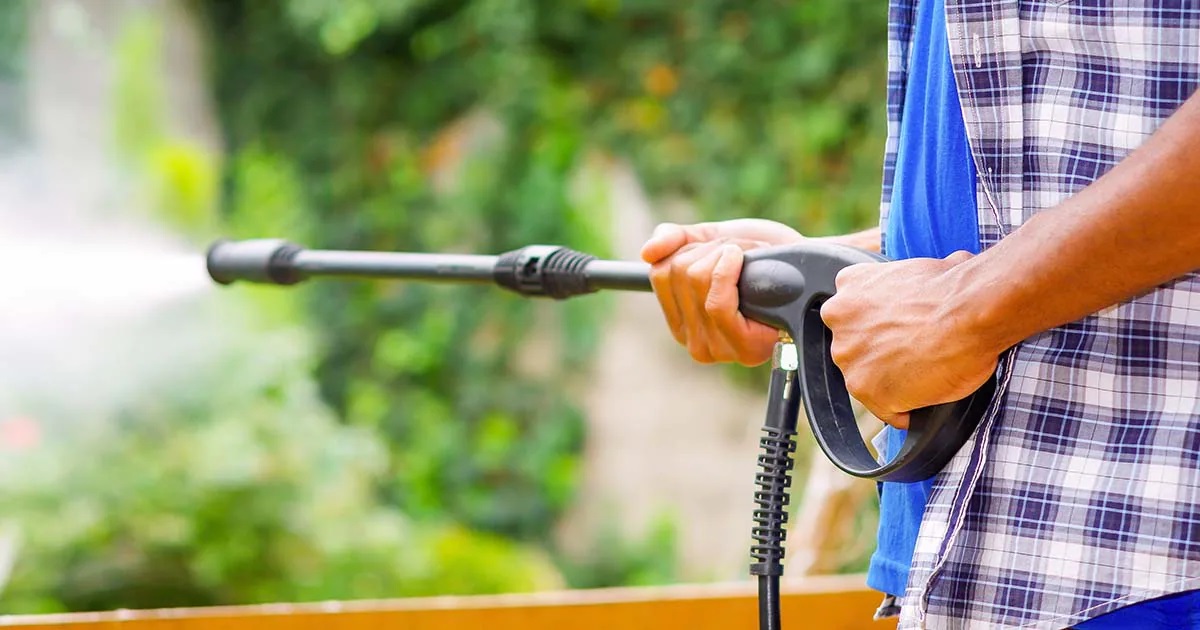
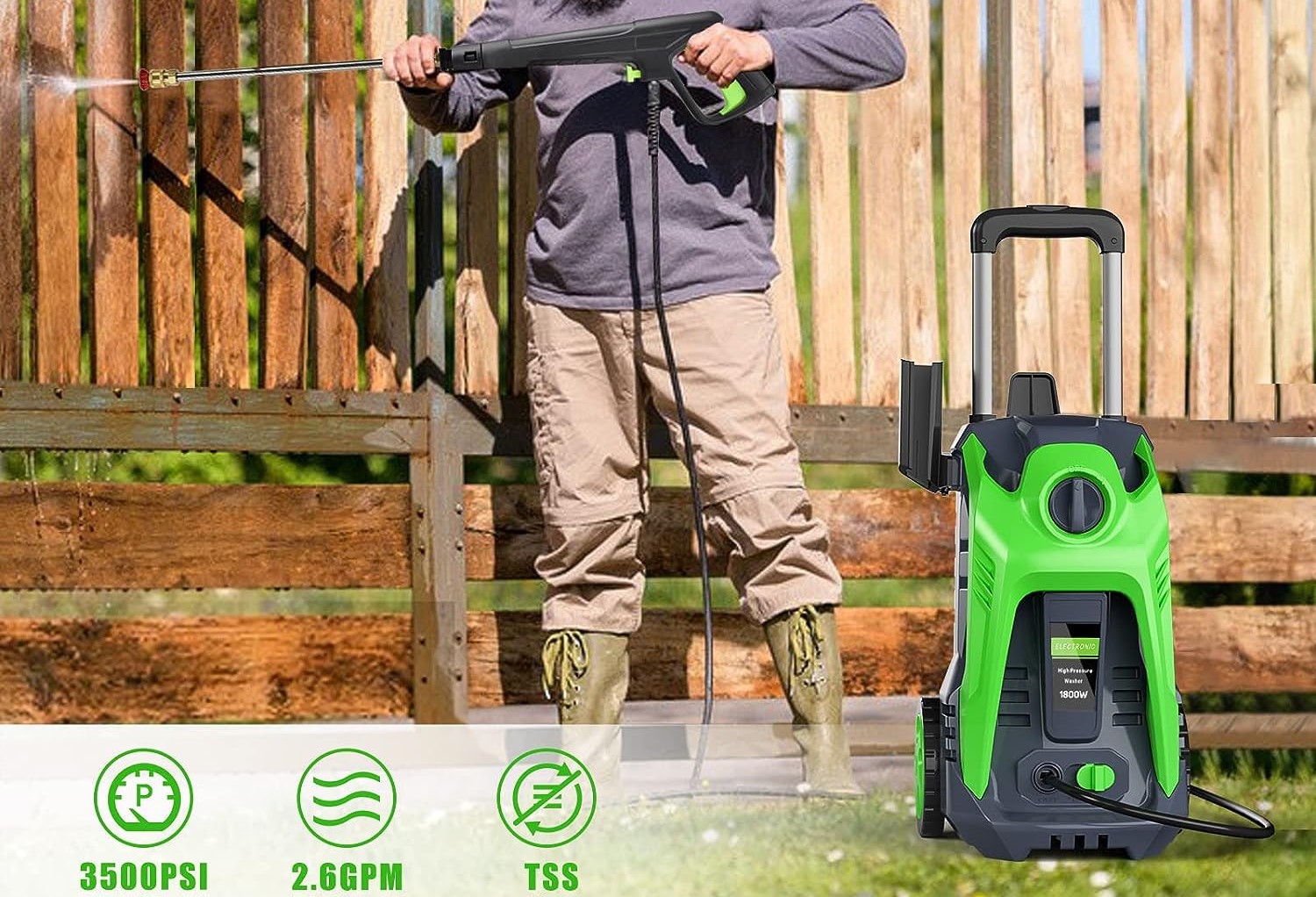
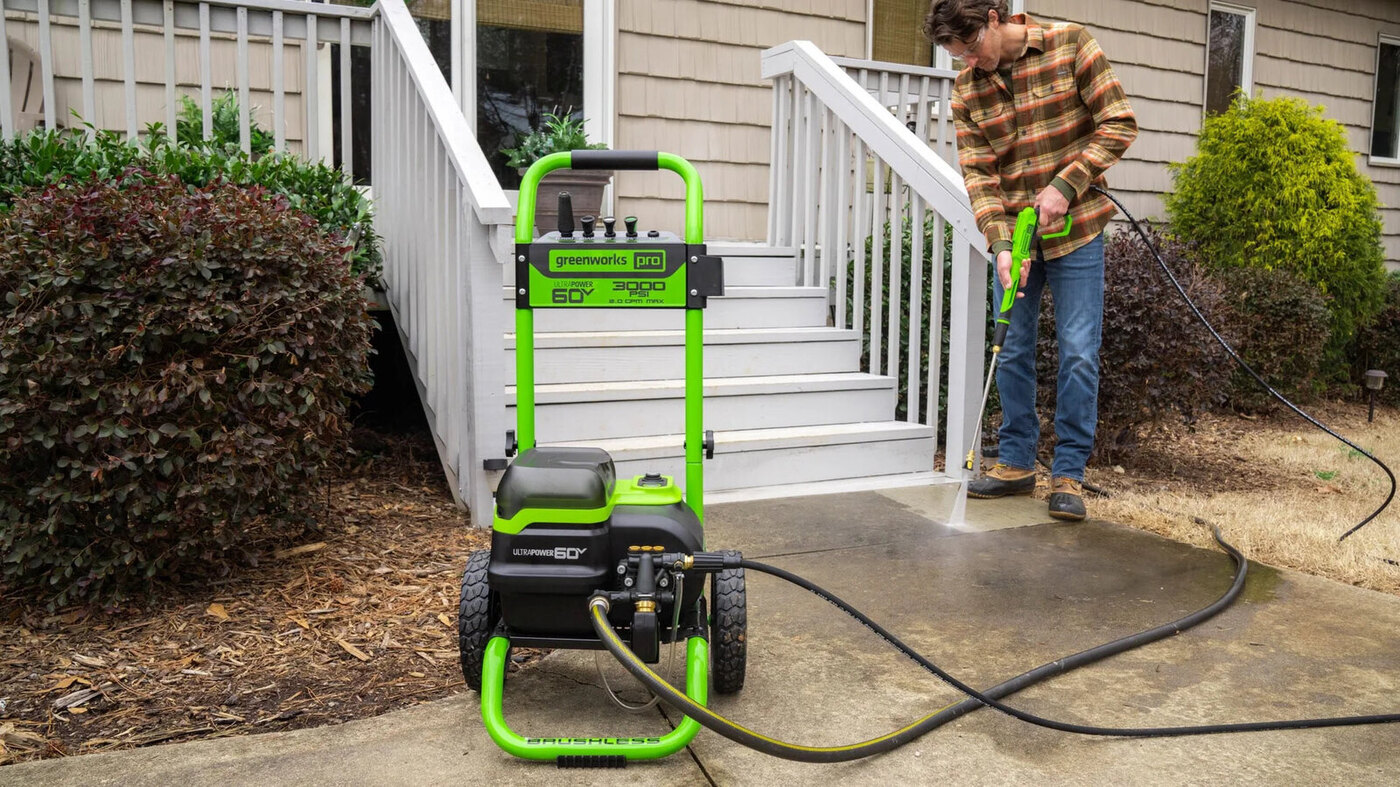
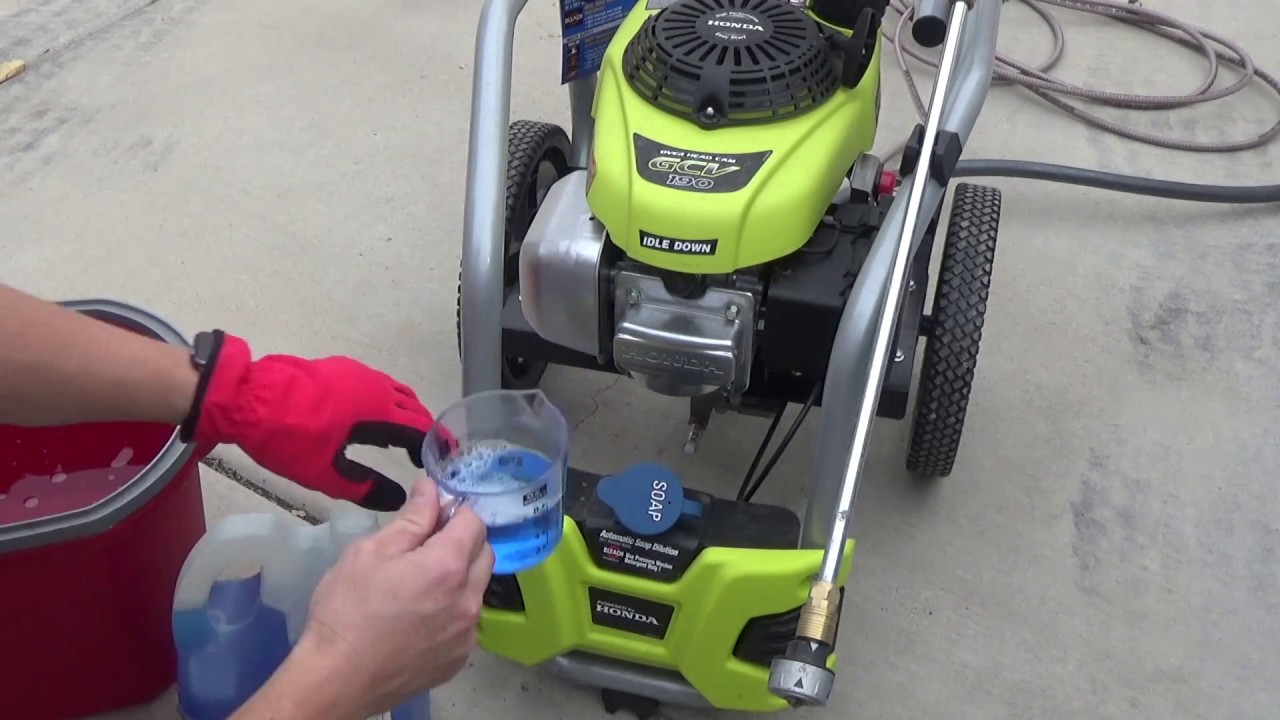
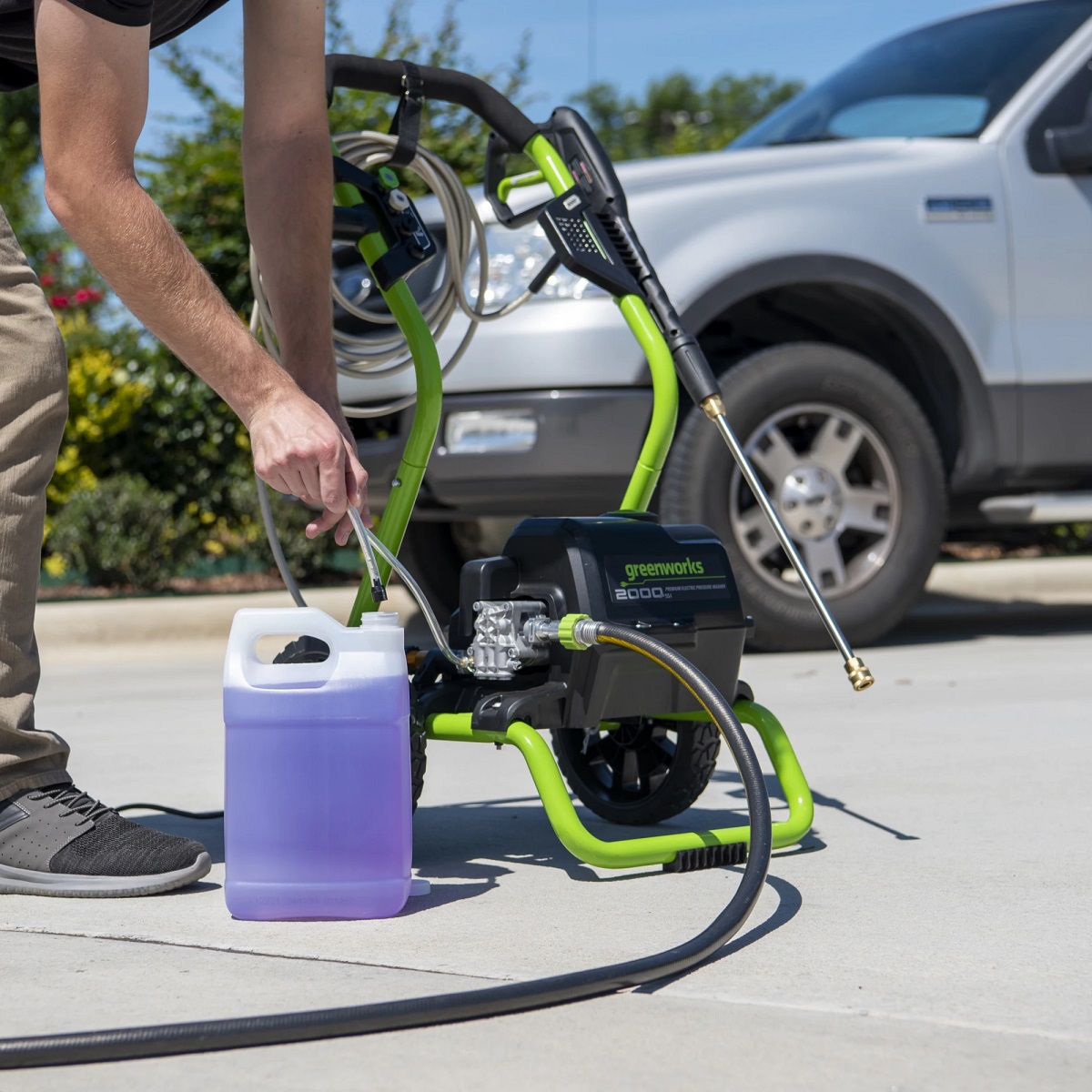
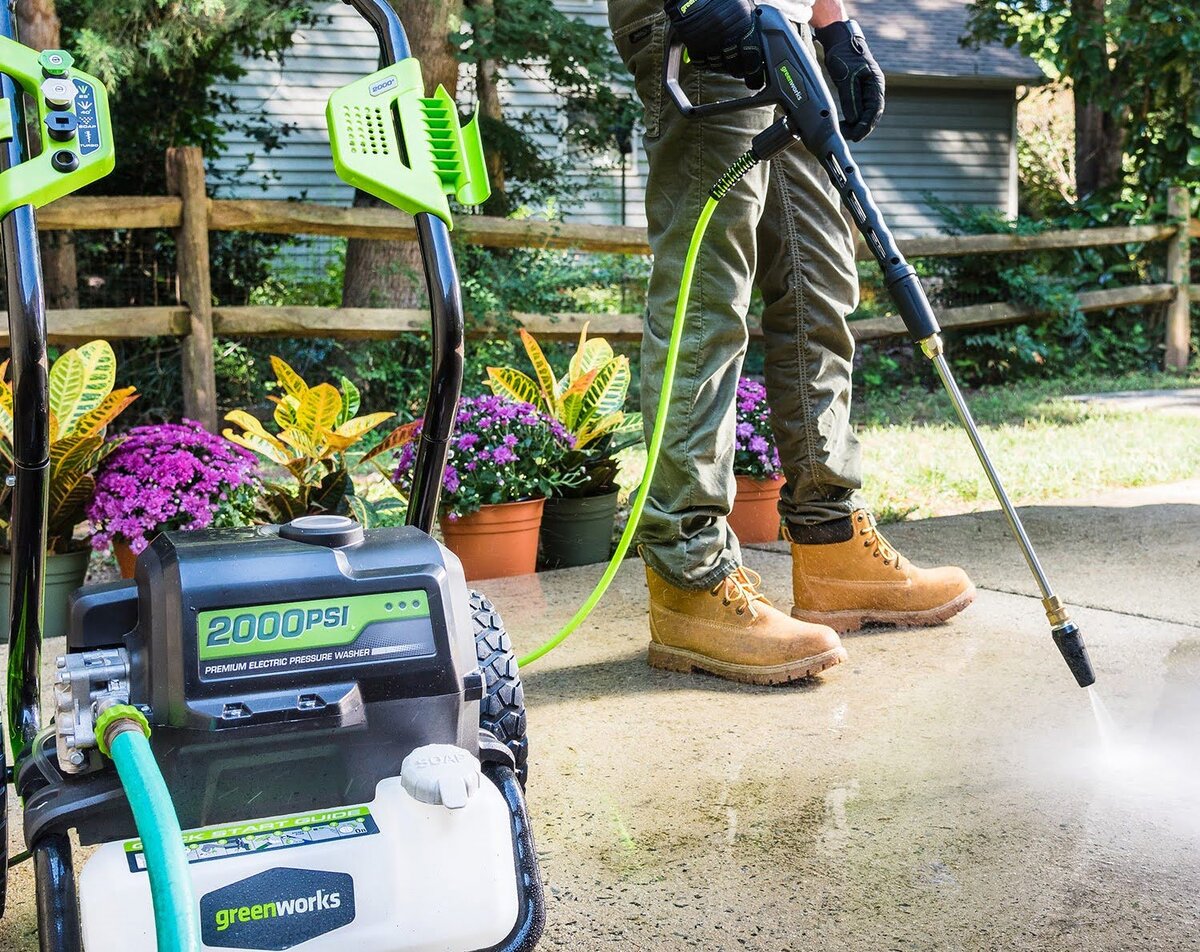
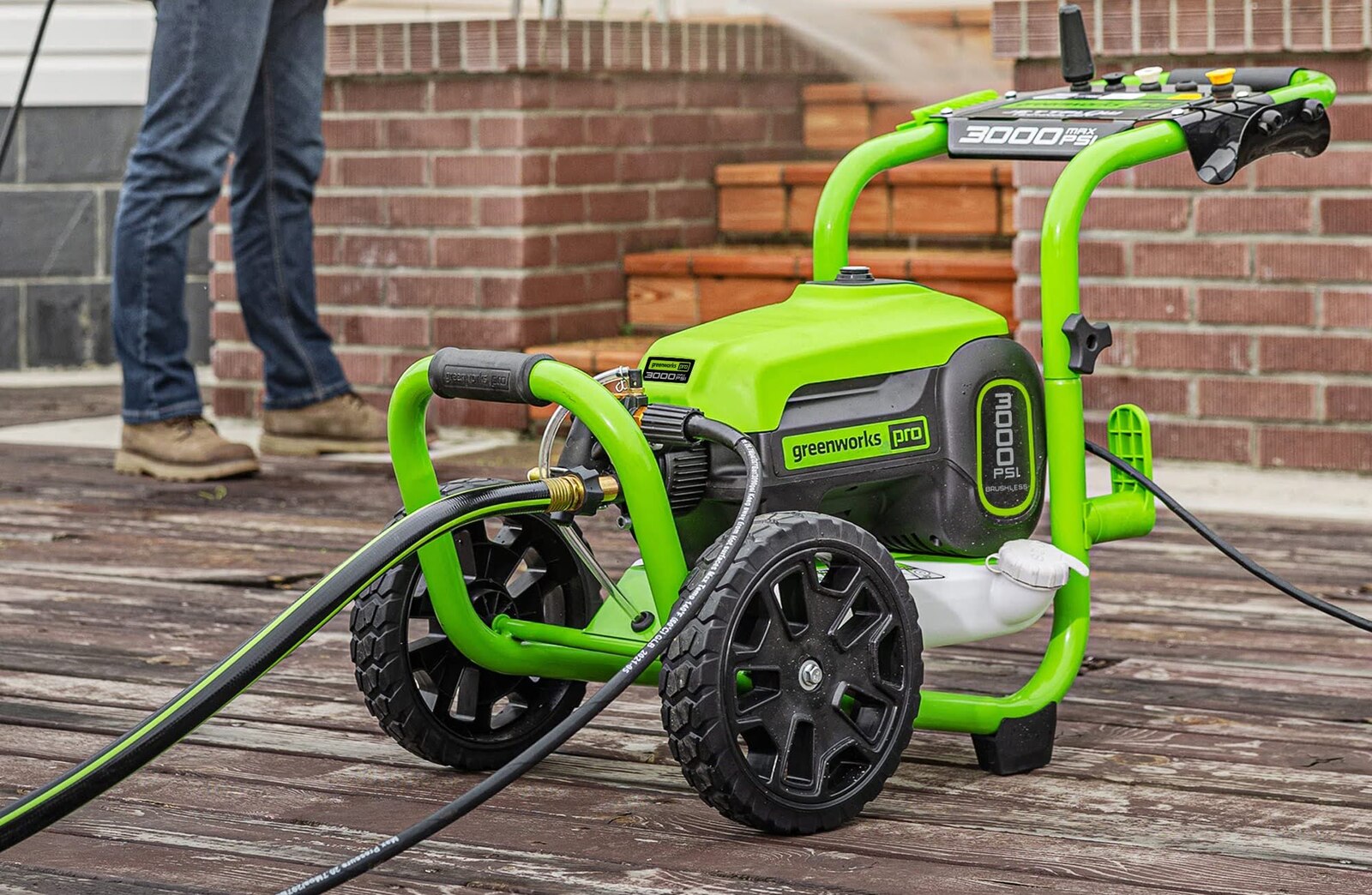
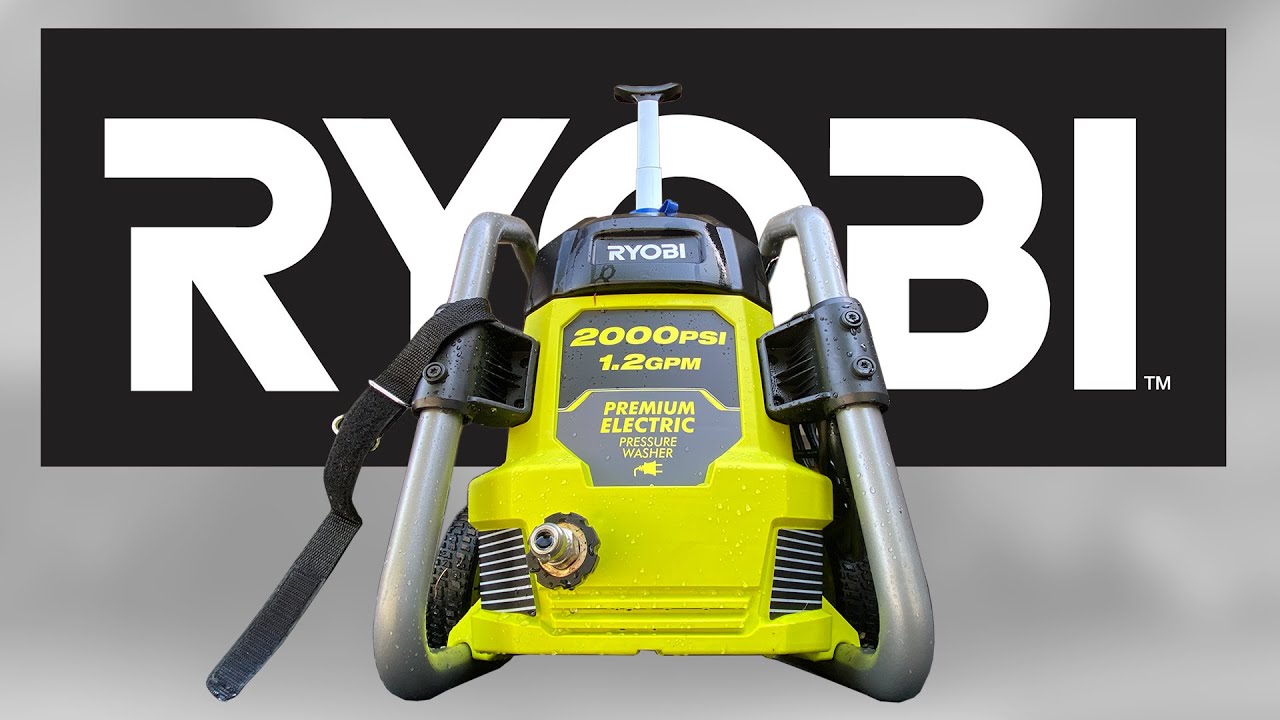

0 thoughts on “What Psi Pressure Washer To Clean Concrete?”